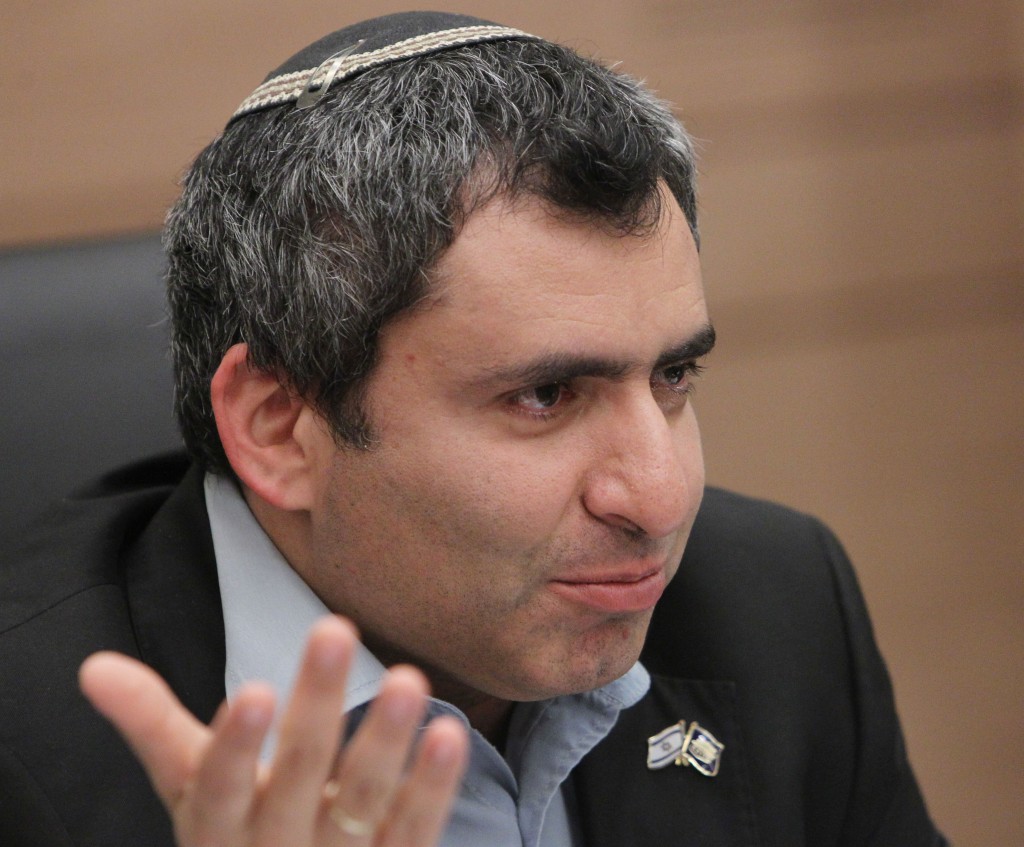Foreign Ministry Refuses to Release Report on EU Sanctions Blunder


As European and Israeli diplomats prepared to meet on Tuesday for discussions on the implementation of the EU ban on cooperation with businesses over the Green Line, Knesset members were demanding to see an internal Foreign Ministry report on its failure to anticipate the EU decision.
The Knesset Subcommittee for Foreign Affairs and Publicity sent Deputy Foreign Minister Zeev Elkin (Likud) a letter asking to review the findings on how the Ministry had been blindsided by sanctions that could have serious economic repercussions for Israel.
Elkin rejected the findings of the report and said he does not intend to release it, which has led to allegations that Elkin is trying to hide something.
Opposition MK Nachman Shai (Labor) said it raises concerns that someone is trying to hide “important information on the handling of the matter by the Foreign Ministry and the government, which is responsible for it.”
Subcommittee chairman MK Ronen Hoffman (Yesh Atid) and Shai also said they intend to hold hearings on the matter.
Elkin is not, however, denying that the EU decision came as a shocking surprise to the Ministry. On the contrary. He told Army Radio on Tuesday morning that “the European guidelines were in the works for several months and drastically changed our cooperation with Europe. This was a process that included many people, and that is why it important for me to find out why we found out about it only after the fact.”
The deputy minister explained that his objection to the report was rather its premise that the new EU guidelines “are not a dramatic change. You can’t just say that there were only a few minor clauses we didn’t know about. That isn’t true. The fact is that the entire Israeli government is dealing with this, as is the American secretary of state. Apparently it is important enough.”
EU Foreign Policy chief Ashton has insisted that the new guidelines merely articulate already existing policy.
Meanwhile, talks with the EU are under way to try to work out “understandings” on the implementation of the guidelines that will enable Israel to continue to participate in valuable EU programs.
Two senior EU diplomats Pierre Vimont, secretary general of the European External Action Service (EEAS), and Christian Berger, EEAS director for North Africa, Middle East, Arabian Peninsula, Iran and Iraq, were scheduled to meet Foreign Ministry director-general Rafi Barak, deputy director-general Ran Curiel and other senior ministry officials in Yerushalayim. A second meeting is already scheduled for Thursday in Brussels.
Israel has said it will not be able to sign an agreement to join the EU’s Horizon 2020 R&D project under the terms of the guidelines.
Both Israel and the EU have an interest in continuing Israel’s involvement — Israel to obtain funds that come with being in the program, and the EU, which doesn’t want to lose access to Israeli research and technology.
This article appeared in print on page 25 of edition of Hamodia.
To Read The Full Story
Are you already a subscriber?
Click "Sign In" to log in!

Become a Web Subscriber
Click “Subscribe” below to begin the process of becoming a new subscriber.

Become a Print + Web Subscriber
Click “Subscribe” below to begin the process of becoming a new subscriber.

Renew Print + Web Subscription
Click “Renew Subscription” below to begin the process of renewing your subscription.











